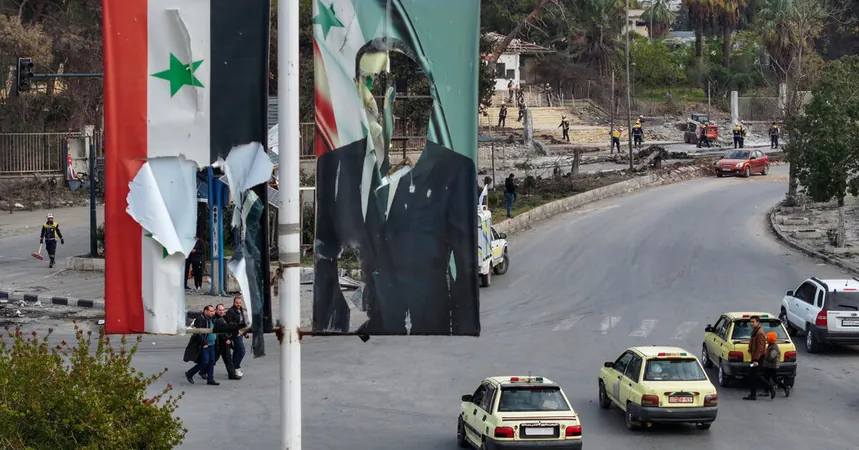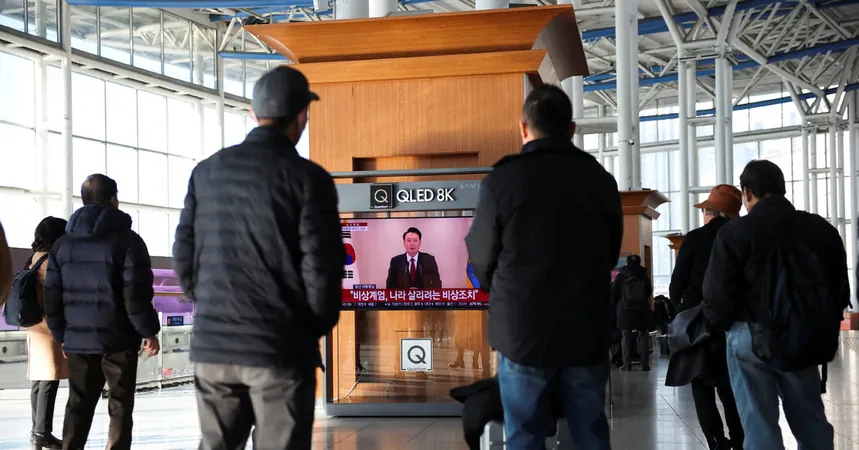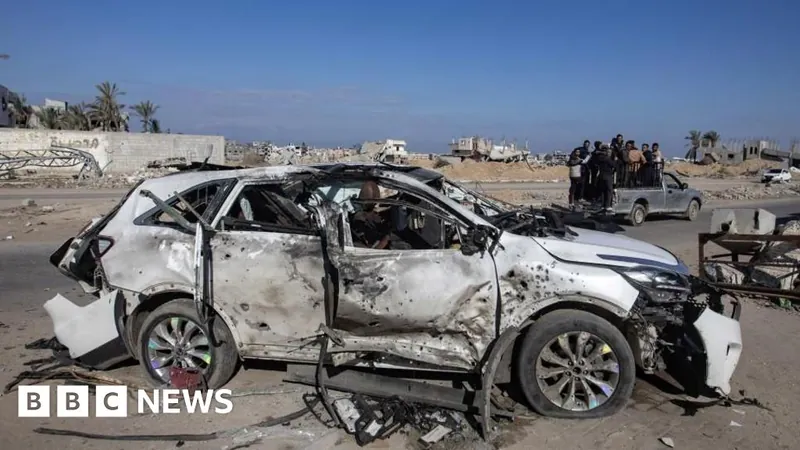
The Sudden Fall of Bashar al-Assad: How Rebel Forces Took Control of Syria
2024-12-09
Author: Jessica Wong
Introduction
In a stunning turn of events, Syrian President Bashar al-Assad's government has collapsed under pressure from rebel forces in a lightning-fast advance toward the capital, Damascus. For over a decade, al-Assad held onto power with the backing of Iranian and Russian military forces. However, on Sunday morning, the strength of opposition forces proved overwhelming, leading to the president's unexpected flight from the country.
The Flight of al-Assad
Al-Assad, notorious for deploying chemical weapons against his own people throughout a grueling 13-year civil war, reportedly fled to Russia as rebels closed in on Damascus. According to Russian state media and Iranian officials, he and his family have been granted political asylum in Russia, a claim that is still subject to independent verification.
Political Asylum and Transfer of Power
The Russian Foreign Ministry announced that al-Assad chose to vacate the presidency and leave the nation following discussions with "conflicting parties." He allegedly instructed his administration to ensure a peaceful transfer of power, plunging Syria into uncertainty.
Opposition Forces Move In
While Assad's departure marked a significant shift, his Prime Minister, Mohammad Ghazi al-Jalali, remained in Syria and expressed willingness to cooperate with rebel factions. Within hours, opposition forces swept into Damascus with minimal resistance from the Syrian military, taking over government buildings and state-run media outlets.
The Background of the Civil War
The backdrop of this upheaval ties back to the Syrian civil war that ignited amidst the Arab Spring uprisings in 2011. This conflict, filled with unspeakable violence, had reached a point of stagnation until recent global conflicts sparked a sudden change. The ongoing war between Hamas and Israel has strained the positions of al-Assad's key allies—Iran, Russia, and Hezbollah. Iran's military capabilities have been adversely affected, and Hezbollah has faced severe losses, weakening its support for al-Assad. Consequently, the Syrian president found himself fighting without the essential backing of these loyal forces.
Rise of Hayat Tahrir al-Sham
Among those waiting to capitalize on Assad's vulnerabilities was Hayat Tahrir al-Sham, an Islamist group with historical ties to Al Qaeda. Over the past year, this group, with the support of Turkey, educated and organized a disciplined military force poised for an offensive. By late November, they initiated a swift campaign that began by capturing Syria's largest city, Aleppo, followed by Hama and Homs—all cities that had previously remained under government control.
Surprise Capture of Damascus
The capture of Damascus came as a surprise not only to international observers but also to the rebels themselves, as they witnessed the regime's inability to mount a serious defense. Many variables contributed to this rapid downfall: the Syrian military was demoralized, poorly equipped, plagued by infighting, and lacking reliable leadership.
Challenges Ahead for Syria
The collapse of al-Assad's regime raises critical questions about the future of Syria. Multiple factions, including Kurdish groups backed by the United States, are also considering what comes next after the ousting of a leader whose family has dominated the nation since a coup in 1970.
U.S. Reaction and Geopolitical Implications
As the United States has maintained a hesitant stance regarding direct involvement in the Syrian conflict, the potential emergence of a new government remains uncertain. Former U.S. ambassador to Syria, Robert S. Ford, calls for the U.S. to clarify its objectives in the region. With various nations recalibrating their strategies and the specter of ISIS resurgence, the geopolitical landscape in the Middle East is poised for yet another dramatic shift.
Conclusion
In this volatile environment, the world watches closely, as the power dynamics in Syria can affect broader Middle Eastern relations and stability. What happens next in Syria could redefine the nation for generations to come. Keep your eyes on this developing story; the implications are profound!





 Brasil (PT)
Brasil (PT)
 Canada (EN)
Canada (EN)
 Chile (ES)
Chile (ES)
 España (ES)
España (ES)
 France (FR)
France (FR)
 Hong Kong (EN)
Hong Kong (EN)
 Italia (IT)
Italia (IT)
 日本 (JA)
日本 (JA)
 Magyarország (HU)
Magyarország (HU)
 Norge (NO)
Norge (NO)
 Polska (PL)
Polska (PL)
 Schweiz (DE)
Schweiz (DE)
 Singapore (EN)
Singapore (EN)
 Sverige (SV)
Sverige (SV)
 Suomi (FI)
Suomi (FI)
 Türkiye (TR)
Türkiye (TR)